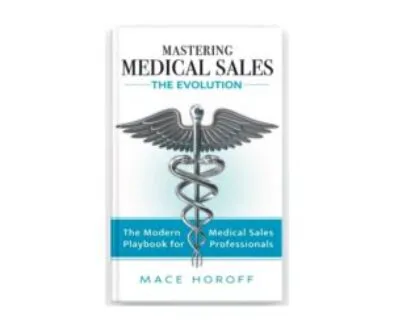Deadly Assumptions in Medical Sales
Medical sales representatives are busy people. As a result, they sometimes take things for granted, which leads them to make assumptions that cause grief and lost business. The most dangerous assumptions are when you assume to understand a customer’s expectations or assume that a customer understands your intentions.
In healthcare, unclear communications cost time, money, and lives. It’s critically important that healthcare sales professionals examine every communication for clarity, whether the communication is to a customer or internal personnel in their company.
Nothing is worse for a sales rep than when a customer expects one thing from a rep and the rep delivers something else. When this happens, you’ll always hear the sales rep start his or her defense with two words: “I thought…”
And therein lies the problem: Sales reps think instead of making the effort to clarify and confirm.
Let me give you an example. In my medical sales training practice, I work with many orthopedic and spine companies. Typically, a surgeon’s office calls a sales rep to schedule a surgery. The expectation is that the sales rep will have the necessary instruments and implants at the hospital for surgery on a specific patient.
Sometimes the surgeon’s request is simple, specific, and clear. “Dr. Smith wants two 60 gram boxes of XYZ Bone Graft Matrix for January 24th.”
Other times, the request might appear simple, but it really isn’t, such as, “Dr. Smith is doing a revision total hip replacement and he wants your revision hip system.” Revision hip systems are usually very complex due to the multiple options they offer. The sales rep, at this point, will approach the situation three possible ways:
- “I know what the surgeon needs.”
- “I’ll bring everything we have.”
- “I’ll talk to the surgeon and find out exactly what he wants.”
Any of these approaches seems reasonable. Yet each has the potential for miscommunications that can range from irritating to catastrophic. For example, you may have known what the surgeon needed all the other times he used your system. But for whatever reason, this time, there was an unexpected surprise that your set couldn’t address. It might have been the surgeon’s oversight, but in his mind, you let it happen because you didn’t prepare adequately in advance and communicate any limitations.
Even when reps take the time to review x-rays and discuss the exact plan with a surgeon, there can be misunderstandings and unstated expectations. One example is when a bone fractures during the revision surgery and the surgeon asks for a cable plate to fix the fracture and the rep didn’t bring it. The rep’s defense is, “You didn’t request it.” The surgeon’s defense is, “You should know what I need.”
When it comes to clear communications in any situation selling to healthcare, I suggest you do two things:
- Define exactly what the customer’s expectations are and…
- Document it!
Today, reps have multiple ways of communicating with customers. When a customer makes a request, specifically state how you will handle that request. Confirm whether or not it is acceptable to the customer. Then put it in writing.
For a situation such as the one I described above, where a customer is requesting something for patient care, list out, in writing, exactly what you will be delivering and when. Ask for confirmation in a written form via email, fax, or any other method that records and documents it.
Even when a customer just wants an answer to a question that you need to research, let the customer know the information that you’re going to get back to her with, and by what date and time. Record it in your scheduling device so you don’t forget.
If you’re going to make an assumption, assume what the French military leader, Napoleon Bonaparte assumed: If a message can be misunderstood, it will be. To mitigate this, Napoleon kept an idiot in his camp. The idiot’s only job was to read every one of Napoleon’s communications before it was sent. If the idiot understood the message as Napoleon intended it, the message was sent. If not, Napoleon rewrote the message to make it simpler.
When you sell in healthcare, you’re not dealing with idiots, but you are dealing with busy professionals who assume you know what they want. Your job as a professional is to clarify those assumptions and get confirmation. This way, no one can blame you for any omissions or misunderstandings. Should they try, you’ll have the documentation to back it up your claim that you did your job professionally and responsibly.



@ 1:39 pm
Do you have any stories about miscommunications in medical sales? Please share them here.
@ 2:45 pm
Marc,
Please do a piece on resumes, indepth, or start a service. Medical Sales resumes are not well done by the standard services despite the high cost of the service.
May God bless you, your family, and your business in 2014,
Deb